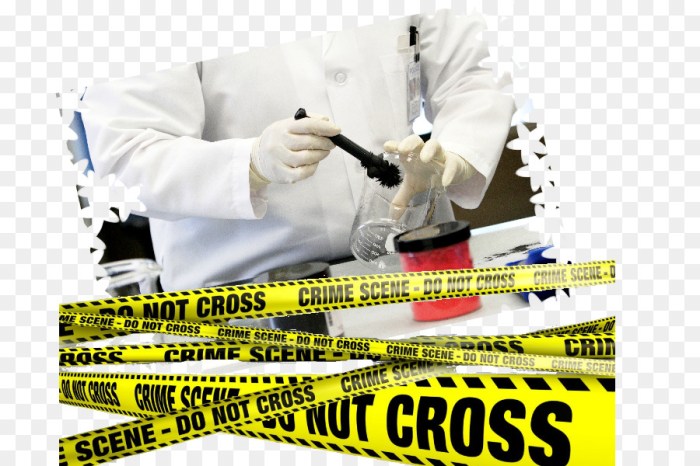Embark on a captivating journey into the realm of chem or biol crossword clue, where the boundaries of science and wordplay intertwine. These enigmatic clues challenge the intellect, demanding a blend of knowledge and lateral thinking to unravel their hidden meanings.
From the intricacies of chemical elements to the complexities of biological processes, chem or biol crossword clues span a vast spectrum of scientific disciplines, inviting us to explore the wonders of the natural world through the lens of language.
Definition of Chemical and Biological Crossword Clues
Crossword puzzles are word games that consist of a grid of squares, some of which are filled with letters to form words or phrases. The remaining squares are blank and must be filled in by the solver using the clues provided.
Crossword clues can be of various types, including chemical and biological clues.
Chemical crossword clues typically test the solver’s knowledge of chemistry, including elements, compounds, reactions, and chemical principles. These clues often use chemical symbols, abbreviations, and specialized terminology. For example, a clue like “NaCl” could refer to the chemical compound sodium chloride, or “H2O” could refer to water.
Solving crossword clues can be tricky, especially when it comes to scientific terms like “chem or biol.” If you’re struggling with this one, you might find some inspiration by exploring eat no food crossword clue . While it may seem unrelated, this clue can provide a fresh perspective and help you crack the “chem or biol” conundrum.
Biological crossword clues, on the other hand, test the solver’s knowledge of biology, including organisms, cells, DNA, and biological processes. These clues often use scientific terms and concepts. For example, a clue like “eukaryotic cell” could refer to a cell that contains a nucleus, or “photosynthesis” could refer to the process by which plants convert sunlight into energy.
Common Chemical Crossword Clues
- Element with the symbol Au: Gold
- Compound used as table salt: Sodium chloride
- Reaction that releases heat: Exothermic
- Chemical bond formed by sharing electrons: Covalent bond
- Unit of energy in chemistry: Calorie
Common Biological Crossword Clues
- Organism that cannot make its own food: Heterotroph
- Process by which plants convert sunlight into energy: Photosynthesis
- Genetic material found in cells: DNA
- Type of cell that contains a nucleus: Eukaryotic cell
- Process by which cells divide: Mitosis
Types of Chemical and Biological Crossword Clues

Chemical and biological crossword clues can be categorized based on their focus and scope. Understanding these categories can enhance your crossword-solving skills and deepen your knowledge of chemistry and biology.
Chemical Crossword Clues
Chemical crossword clues typically focus on specific aspects of chemistry, such as:
- Elements:Clues that refer to the fundamental building blocks of matter, such as hydrogen, oxygen, and carbon.
- Compounds:Clues that describe chemical substances formed by the combination of two or more elements, such as water (H 2O) and carbon dioxide (CO 2).
- Reactions:Clues that involve chemical changes, such as combustion, acid-base reactions, and redox reactions.
- Equipment and Techniques:Clues that refer to laboratory apparatus or experimental methods used in chemistry, such as beakers, test tubes, and chromatography.
Biological Crossword Clues
Biological crossword clues encompass a wide range of topics related to living organisms, including:
- Organisms:Clues that refer to specific plants, animals, or microorganisms, such as bacteria, viruses, and fungi.
- Processes:Clues that describe biological functions or mechanisms, such as photosynthesis, respiration, and reproduction.
- Structures:Clues that focus on the anatomical or cellular components of organisms, such as cells, tissues, and organs.
- Classification and Taxonomy:Clues that involve the scientific classification and naming of organisms, such as the Linnaean system and binomial nomenclature.
Overlapping or Hybrid Clues
Some crossword clues may overlap or combine elements of both chemistry and biology. For example, a clue that refers to the chemical composition of a biological molecule, such as DNA or proteins, would fall into this category. Additionally, clues that involve the interactions between chemical and biological systems, such as biochemistry and biophysics, may also be considered hybrid.Understanding
the different types of chemical and biological crossword clues can help you approach crossword puzzles with a more strategic mindset. By recognizing the focus or scope of a clue, you can narrow down your search and increase your chances of finding the correct answer.
Strategies for Solving Chemical and Biological Crossword Clues
Solving chemical and biological crossword clues can be a challenging but rewarding experience. By employing a combination of general crossword-solving strategies and specific techniques tailored to scientific terminology, you can increase your chances of success.
General Strategies
When tackling any crossword clue, it’s helpful to approach it systematically. Start by identifying the key terms and concepts within the clue. Break down the clue into its component parts, considering the different ways the words can be interpreted.
Use deductive reasoning to eliminate incorrect answers. Pay attention to the length of the answer and the number of letters in each word. Consider the context of the clue and the surrounding answers.
Don’t be afraid to think laterally. Sometimes, the answer to a clue may not be immediately obvious. Try to approach the clue from a different perspective or consider alternative meanings of the words.
Specific Techniques for Chemical and Biological Clues
When it comes to chemical and biological clues, there are some specific techniques that can be particularly helpful.
- Understand Chemical Nomenclature:Familiarize yourself with the rules and conventions for naming chemical compounds. This will help you decipher clues that use chemical formulas or IUPAC nomenclature.
- Recognize Biological Terms:Study the terminology used in biology, including the names of organisms, anatomical structures, and biochemical processes. This knowledge will help you identify the correct answer to clues related to these topics.
- Use Reference Materials:Don’t hesitate to consult reference materials such as textbooks, encyclopedias, or online databases. These resources can provide valuable information to help you solve difficult clues.
Examples of Chemical and Biological Crossword Clues with Solutions: Chem Or Biol Crossword Clue
Chemical and biological crossword clues can vary greatly in difficulty, depending on the level of knowledge required to solve them. Some clues may require a basic understanding of chemistry or biology, while others may require more specialized knowledge.
The following table provides examples of chemical and biological crossword clues, along with their answers and explanations.
Chemical Crossword Clues
| Clue | Answer | Explanation |
|---|---|---|
| Across 1: Element with the symbol Au | GOLD | Gold is a chemical element with the atomic number 79 and the symbol Au. It is a dense, soft, shiny, malleable, and ductile metal with a reddish-orange color. |
| Down 2: Compound used as a solvent | ACETONE | Acetone is a colorless, flammable liquid with a sweet odor. It is a ketone and the simplest enone. Acetone is a versatile solvent that is used in a wide variety of applications, including nail polish remover, paint thinner, and degreaser. |
| Across 3: Acid found in citrus fruits | CITRIC ACID | Citric acid is a weak organic acid that is found in citrus fruits, such as oranges, lemons, and grapefruits. It is a white, crystalline powder that is soluble in water. Citric acid is used as a flavoring agent, preservative, and chelating agent. |
Biological Crossword Clues
| Clue | Answer | Explanation |
|---|---|---|
| Across 1: Organism that breaks down organic matter | DECOMPOSER | Decomposers are organisms that break down organic matter, such as dead plants and animals, into simpler substances. This process is essential for recycling nutrients back into the environment. |
| Down 2: Process by which plants convert sunlight into energy | PHOTOSYNTHESIS | Photosynthesis is a process by which plants use sunlight, water, and carbon dioxide to create glucose, a type of sugar. This process is essential for plant growth and provides the basis for the food chain. |
| Across 3: Animal that has a backbone | VERTEBRATE | Vertebrates are animals that have a backbone, or spinal column. This group includes fish, amphibians, reptiles, birds, and mammals. |
Advanced Techniques for Solving Complex Crossword Clues

Solving complex crossword clues requires advanced techniques that go beyond simple wordplay. These clues often incorporate cryptic language, multi-part puzzles, and wordplay devices like anagrams and homophones.
Cryptic Clues
Cryptic clues are written in a way that requires lateral thinking. They may use puns, double meanings, or wordplay to hide the answer. For example, the clue “A bird in the hand is worth two in the bush” could refer to the bird “tit” (tit in the hand) or the expression “better safe than sorry” (two in the bush).
Multi-Part Clues, Chem or biol crossword clue
Multi-part clues provide multiple pieces of information that must be combined to solve the clue. For example, the clue “A noble gas with an atomic number of 18” could be solved by combining the definition “A noble gas” with the fact that “18” is the atomic number of argon.
Anagrams
Anagrams are words that are formed by rearranging the letters of another word. For example, the clue “Rearrange ‘listen’ to get a metal” could be solved by rearranging the letters of “listen” to get “tin.”
Homophones
Homophones are words that sound the same but have different spellings and meanings. For example, the clue “A word that sounds like ‘pear’ but is a fruit” could be solved by the word “pair.”
Solving Complex Clues
To solve complex crossword clues, it is important to:
- Read the clue carefully and identify the key words.
- Consider different meanings of the words and phrases.
- Look for wordplay devices like anagrams and homophones.
- Try different combinations of letters and words to see if they fit the clue.
- Use a crossword solver or dictionary to help you find the answer.
With practice, you can become proficient at solving even the most complex crossword clues.
Quick FAQs
What is the key to solving chem or biol crossword clues?
A combination of scientific knowledge, deductive reasoning, and lateral thinking is essential for deciphering these enigmatic clues.
How can I improve my skills in solving chem or biol crossword clues?
Practice regularly, familiarize yourself with common scientific terms and concepts, and utilize reference materials and online resources.